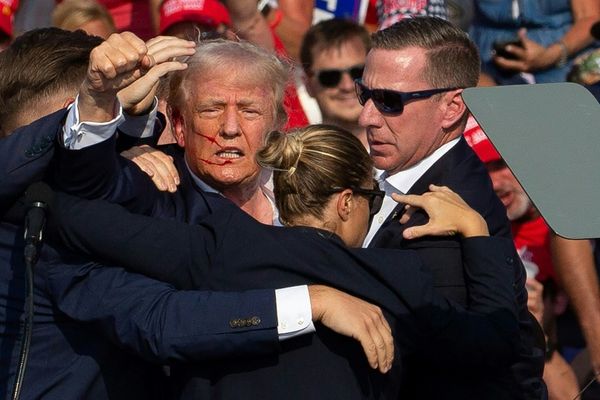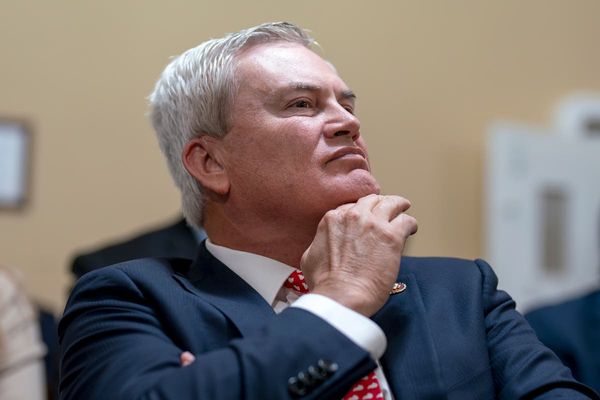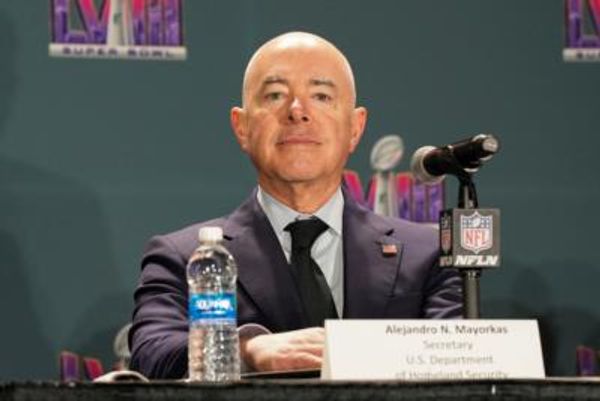
The attempted assassination of Donald Trump at a Pennsylvania rally was “unacceptable”, the director of the US Secret Service said as investigations continued, adding that though “the buck stops with me”, she would not resign.
“It was unacceptable and it’s something that shouldn’t happen again,” Kimberly Cheatle told ABC News, amid growing pressure to explain how the gunman who tried to kill the former president and current Republican nominee was not stopped by agents and local police.
The shooting saw Trump shot in the ear while one rally-goer was killed and two others injured. It has plunged American politics into deep turmoil, ramping up fears of political violence in a presidential election campaign that is already marred by concerns over civil unrest.
But it has also prompted huge hand-wringing over how such a security lapse could happen given the intense security presence around Trump, led by the Secret Service.
Trump was speaking on Saturday at the Butler county show grounds in rural western Pennsylvania when the gunman climbed to a rooftop near the rally and opened fire, before being killed by return fire from law enforcement.
Bystander video and witness accounts show rally-goers noticed and alerted officers. Cheatle said local police had responsibility for the building concerned, and had even been inside it.
She said: “In this particular instance, we did share support for that particular site and the Secret Service was responsible for the inner perimeter. And then we sought assistance from our local counterparts for the outer perimeter. There was local police in that building – there was local police in the area that were responsible for the outer perimeter of the building.”
Joe Biden and the Democratic governor of Pennsylvania, Josh Shapiro, praised the man who was killed, former fire chief Corey Comperatore, 50. But Comperatore’s wife, Helen Comperatore, told the New York Post she turned down a call from the president, as her husband “was a devout Republican and … would not have wanted me to talk to him”.
Saying she had “no ill will towards Biden”, Comperatore said Trump had not called.
As investigations continued, including a search for the gunman’s motive, Cheatle faced tough questions about how the shooter was missed.
“It was obviously a situation that as a Secret Service agent, no one ever wants to occur in their career,” said Cheatle, a former agent herself.
“The buck stops with me. I am the director of the Secret Service, and I need to make sure that we are performing a review and that we are giving resources to our personnel as necessary.”
Cheatle was appointed by Biden in 2022 as the 27th Secret Service director, the second woman in the role, after a spell away from the agency including working for Pepsi. Amid tensions over the assassination attempt, Republicans calling for Cheatle to quit have said her appointment was a result of policies to increase diversity.
On Tuesday, the far-right Colorado congresswoman Lauren Boebert, a prolific attention-seeker, introduced a bill “to prohibit the use of federal funds for the salary of the director of the United States Secret Service”.
Using conspiracy-tinged language, Boebert said the assassination attempt “was either intentional or the result of gross incompetence”, adding: “Under Director Cheatle’s failed leadership, the United States Secret Service has prioritised woke [Diversity, Equity and Inclusion] policies over … core responsibilities … including protecting our nation’s leaders.
“This lack of leadership contributed to the first assassination attempt of a president in 43 years,” since Ronald Reagan survived being shot in Washington DC, in March 1981.
“Director Cheatle has got to go!”
Slightly more soberly, the Republican-run House oversight committee called Cheatle to testify next Monday, 22 July.
The committee chair, James Comer of Kentucky, said: “The United States Secret Service has a no-fail mission, yet it failed on Saturday when a madman attempted to assassinate President Trump, killed an innocent victim, and harmed others.
“Americans demand answers from Director Kimberly Cheatle.”
Cheatle has said she will “work with the appropriate congressional committees on any oversight action” and “participate fully” in an independent review announced by Biden.
She told ABC: “Secret Service is not political. Security is not political. People’s safety is not political. And that’s what we’re focused on as an agency.”
She had reached out to Trump, she said, but had not spoken to him.
On Monday, Trump appeared at the Republican convention in Milwaukee with a prominent bandage on his ear. Speakers repeatedly praised his actions on coming under fire and gave thanks, usually to God, for his survival.
Cheatle repeated denials of reports in rightwing media that Trump’s team asked for increased protection and were rebuffed – or that resources were reapportioned to protect the first lady, Jill Biden.
Criticism has also focused on possible operational failings, including reports that the gunman was identified but not engaged.
“I don’t have all the details yet but it was a very short period of time,” Cheatle said. “Seeking that person out, finding them, identifying them, and eventually neutralising them took place in a very short period of time, and it makes it very difficult.”
Thomas Matthew Crooks, 20, used an AR-15-style rifle to fire at Trump. Crooks was killed by a Secret Service sniper.
Cheatle said: “They have the ability to make that decision on their own – if they see that it’s a threat. And they did that in that instance.
“And I applaud the fact that they made that decision and didn’t have to check with anybody and thankfully neutralised the threat.”
In the aftermath of the assassination attempt, political figures on both sides of the aisle have called for calm and a softening of campaign rhetoric.
On Tuesday, the need for such calls was clear. In a bulletin to law enforcement across the US, the FBI and Department of Homeland Security warned of possible “follow-on or retaliatory attacks”.
“The FBI and DHS remain concerned,” the bulletin said, because “individuals in some online communities have threatened, encouraged, or referenced acts of violence in response to the attempted assassination”.










